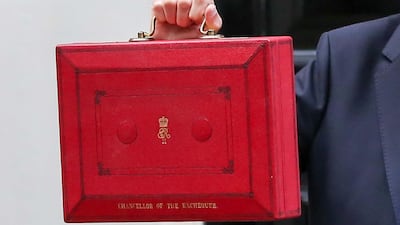With Rishi Sunak, the newly appointed UK chancellor, set to unveil his first budget on March 11, many are attempting to second-guess what it will reveal.
The Conservative Party’s election manifesto provided a number of spoilers, but Mr Sunank, like all Chancellors before him, will still reveal some surprises. So how will these potential changes affect investors in the Gulf region?
The ‘triple lock’ promise
The manifesto promised a number of tax-related incentives. Among them was a triple lock promise to freeze income tax, VAT and National Insurance. However, looking at it in another way, this was confirmation that other key taxes, namely corporation tax, capital gains tax and stamp duty land tax (SDLT), are fair game. For those living outside the UK with interests in the country, these unprotected taxes are most relevant to them.
Corporation tax will not go down
Non-resident companies can still be subject to corporation tax on UK earnings, particularly rental income and capital gains on UK land. Under current statute the rate of corporation tax will drop to 17 per cent from 19 per cent on April 1. However, given that prime minister Boris Johnson said himself that his government would introduce legislation to reverse this tax cut, it is safe to assume this will be high up on Mr Sunak’s list. For those offshore companies who might have been putting off realising a profit on UK land, delaying to April will no longer produce a saving. Even so, at 19 per cent UK corporation tax remains one of the lowest rates in Europe.
Capital gains tax relief slashed for entrepreneurs
Traditionally those outside the UK never had to concern themselves with capital gains tax unless they were only temporarily (for less than six tax years) non-resident. This changed in relation to residential property in April 2015 and all other UK land in April 2019. However, non-residents will remain outside the scope of capital gains tax on the sale of any other UK assets and no changes on this front have been mooted.
For any entrepreneurs resident in the UK or thinking of becoming UK resident, they will be paying more tax on a sale of their businesses in future tax years, or even post budget day. At the moment, Entrepreneur’s Relief can be claimed to reduce the rate of capital gains tax from 20 per cent to 10 per cent on the first £10 million (Dh47.51m) of gains realised by a UK resident entrepreneur selling a trading business. Another election promise, reiterated since, has been to cut this generous relief. Whether this means reducing the £10m allowance or abolishing it completely, will become clear when Mr Sunak unpacks his red box.
Assuming the standard capital gains tax rate of 20 per cent is not increased, and there have been no public suggestions it will, it remains low by European standards and very low compared to historic rates. For those permanent non-residents owning UK businesses this should be of little note, as gains realised by them are likely to continue to be outside the scope of this tax altogether.
Stamp duty to rise for non-residents
The tax cost of buying (and selling) UK land if you are non-resident has steadily increased over the last 10 years and looks set to go up again after the budget. Two years ago the government announced its intention to add a further 3 per cent to the SDLT charge for foreign buyers of UK residential property, meaning a top rate of 18 per cent. Following consultation this was quietly scrapped but revived in the Conservative Party manifesto with a promise to levy a surcharge at up to 3 per cent on buyers who are not UK tax resident, including British expatriates.
Although SDLT is payable on completion, past changes have only applied to transactions that have exchanged after midnight on budget day. So if you are not UK resident and are in the process of buying a UK residential property, the cautious approach is to make sure you exchange before midnight on March 11.
However, until Mr Sunak steps up to the despatch box, we will not know what the changes, if any, actually look like. Watch this space.
Paul Fairbairn is a partner at UK law firm Cripps Pemberton Greenish

